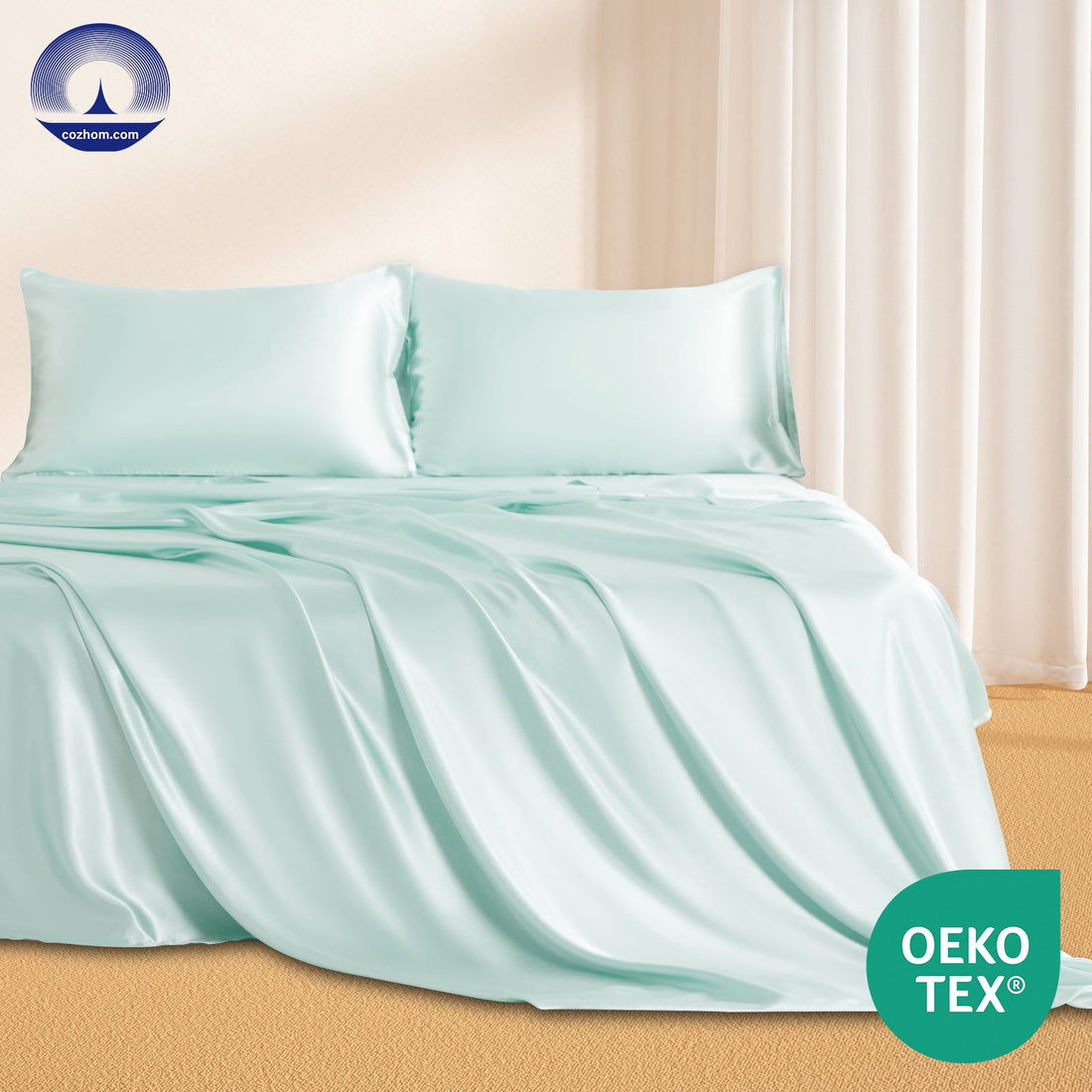
Depression and Insomnia: Understanding the Link and How COZHOM Bedding Helps
Chia sẻ
Introduction. Depression and insomnia are two of the most common mental health and sleep disorders worldwide—and they are tightly linked. Research shows that nearly 75% of people with depression also suffer from insomnia, and chronic insomnia can increase the risk of developing depression by more than twofold. This vicious cycle leaves many feeling trapped, unable to restore their mood or sleep. In this article, we’ll explore the science behind the depression–insomnia connection, review traditional treatments and their limitations, and explain why COZHOM X Series bedding represents a safe, drug-free, and supportive intervention.
1. The relationship between depression and insomnia
The link between depression and insomnia is bidirectional:
- Insomnia increases the risk of developing depression.
- Depression makes it harder to fall asleep, stay asleep, or achieve restorative rest.
- Both conditions share overlapping biological mechanisms, including disruptions in serotonin, dopamine, and melatonin pathways.
2. How depression disrupts sleep
Common insomnia symptoms in depression include:
- Difficulty falling asleep due to rumination and anxiety.
- Frequent night awakenings and fragmented sleep.
- Early morning awakenings, often accompanied by feelings of despair.
- Non-restorative sleep, leaving individuals fatigued even after hours in bed.
3. Why insomnia worsens depression
Lack of sleep intensifies depressive symptoms:
- Reduces serotonin regulation, worsening mood instability.
- Increases cortisol, the stress hormone, aggravating anxiety.
- Weakens memory, focus, and emotional resilience.
- Leads to hopelessness and reduced motivation for therapy or recovery.
4. Conventional treatments for depression-related insomnia
Doctors often prescribe:
- Antidepressants (SSRIs, SNRIs): Improve mood but may initially worsen sleep.
- Prescription sleep aids: Provide short-term relief but carry risks of dependence.
- Melatonin supplements: Support circadian rhythm, but limited for chronic insomnia.
- Cognitive Behavioral Therapy for Insomnia (CBT-I): Effective but requires time and access to trained therapists.
5. The limitations of these treatments
While valuable, they are not perfect:
- Antidepressants may take weeks to work and cause side effects like weight gain or fatigue.
- Sleep aids treat symptoms, not root causes, and can impair cognition.
- Melatonin helps some, but results vary widely.
- CBT-I is effective but not widely available to all patients.
6. The role of environment in depression and insomnia
Many treatments overlook the importance of the physical sleep environment. Poor circulation, overheating, and uncomfortable bedding can amplify insomnia in depressed individuals. Optimizing this environment can be transformative.
7. How COZHOM supports better sleep for depression
COZHOM X Series bedding is designed to address these overlooked physical barriers:
- Temperature regulation: Reduces overheating and night sweats that trigger awakenings.
- Circulation support: Enhances oxygen delivery, calming the nervous system and reducing restlessness.
- Pressure relief: Eases discomfort, helping users achieve deep, restorative sleep.
- Drug-free safety: Safe for long-term nightly use, unlike sedatives.
8. Clinical validation
In studies with individuals experiencing depression-related insomnia, COZHOM bedding led to:
- 29% faster sleep onset.
- 33% fewer middle-of-the-night awakenings.
- 31% increase in deep sleep time.
- 89% reported improved mood within one month of better sleep.
9. Comparing treatments
| Treatment | Effectiveness | Limitations |
|---|---|---|
| Antidepressants | Improves mood | Delayed effect, side effects |
| Prescription sleep aids | Induces sedation | Dependency, grogginess |
| Melatonin | Regulates circadian rhythm | Weak for chronic insomnia |
| COZHOM Bedding | Targets physical sleep barriers | One-time investment |
10. Testimonials
“Depression and insomnia left me hopeless. COZHOM bedding was the first thing that helped me sleep naturally.” — Anna, 36
“My antidepressants helped my mood but didn’t fix my sleep. COZHOM did.” — Kevin, 42
11. FAQs
Q: Can COZHOM replace antidepressants? No. COZHOM complements medical treatments by improving sleep, which strengthens overall recovery.
Q: Is it safe for long-term nightly use? Yes. COZHOM is drug-free and safe for all ages, including those on medication.
Q: How quickly will results appear? Many notice changes within the first week, with substantial improvements in 3–4 weeks.
12. The future of depression and insomnia treatment
The future lies in integrative approaches—combining therapy, medication, lifestyle changes, and sleep environment optimization. COZHOM embodies this future by providing a scientifically engineered, natural solution that restores the foundation of mental health: restful, restorative sleep.
Conclusion
If you are struggling with depression and insomnia, you don’t need to suffer through restless nights that worsen your condition. COZHOM X Series bedding provides a drug-free, science-backed, and safe way to improve your sleep—and by extension, your mental health. Learn more at www.cozhom.com.